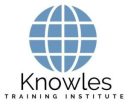Leadership and Organizational Time Management training courses in Brussels, Belgium

Effective time management is essential for leaders and organizations striving to achieve their goals in today’s fast-paced, results-driven environment. In a city like Brussels, where international organizations, governmental bodies, and multinational corporations converge, managing time not just on an individual level but across teams and entire organizations is crucial for maintaining productivity, meeting deadlines, and sustaining growth.
Our Leadership and Organizational Time Management Training Courses in Brussels, Belgium focus on equipping leaders, managers, and team members with the skills needed to optimize time management at both the individual and organizational levels. The course goes beyond basic time management and dives into strategic approaches that can elevate the efficiency of entire teams and organizations, ensuring that every hour spent is aligned with the company’s larger goals and vision.
Module 1: The Role of Time Management in Leadership
Why effective time management is a cornerstone of strong leadership
How leaders’ time management impacts team performance and organizational culture
Identifying common time management challenges faced by leaders and managers
Developing a leadership mindset that values time as a resource
Module 2: Prioritizing Organizational Goals and Objectives
Aligning individual and team tasks with organizational goals
The importance of strategic prioritization in a leadership role
How to make tough decisions about resource allocation and time use
Using the Eisenhower Matrix and Pareto Principle (80/20 Rule) for better decision-making
Module 3: Leading and Managing Teams with Time Efficiency
Setting clear expectations and timelines for teams
How to delegate tasks effectively to maximize team productivity
Managing conflicting priorities within teams and across departments
Creating a culture of accountability through structured deadlines and regular check-ins
Module 4: Optimizing Time Management for Organizational Growth
Establishing time management frameworks at the organizational level
Developing processes and systems for streamlining workflows
Aligning long-term strategic plans with day-to-day operations
Tools and technology to support organizational time management (project management software, time tracking tools)
Module 5: Time Management for Remote and Hybrid Teams
Navigating time zone differences and managing remote teams efficiently
Best practices for maintaining communication and collaboration across locations
Time management challenges in hybrid work environments and how to overcome them
Building trust and autonomy in remote teams to reduce micromanagement and improve productivity
Module 6: Building High-Performance Routines for Leaders and Teams
Designing daily and weekly routines that support high performance
Time blocking and scheduling techniques for team leaders
How to schedule key leadership activities such as decision-making, coaching, and strategy
Encouraging team members to develop productive habits and routines
Module 7: Time Management Tools for Leaders and Organizations
Overview of project management tools (Trello, Asana, Monday.com, etc.)
Collaborative tools for teams (Slack, Microsoft Teams, Google Workspace)
Time tracking and reporting tools for organizational transparency
Using dashboards and KPIs to track progress on team and organizational goals
Module 8: Managing Time During Crises and Tight Deadlines
Leading through crisis: How to manage time and resources under pressure
Communicating priorities clearly to avoid confusion during urgent situations
Crisis management strategies to ensure teams stay on track during high-stakes moments
Balancing short-term deadlines with long-term vision during critical periods
Module 9: Continuous Improvement and Feedback Loops
Building a system for evaluating and improving time management practices at the organizational level
The role of feedback and reflection in improving team and individual time management
How to create an organizational culture of continuous learning and adaptability in relation to time management
Methods for assessing the ROI of time management improvements
Effective time management is essential not just for personal productivity, but for the success of entire teams and organizations. Leaders in Brussels—whether in multinational corporations, European Union institutions, NGOs, or startups—need to master time management to guide their teams, optimize workflows, and meet deadlines consistently.
